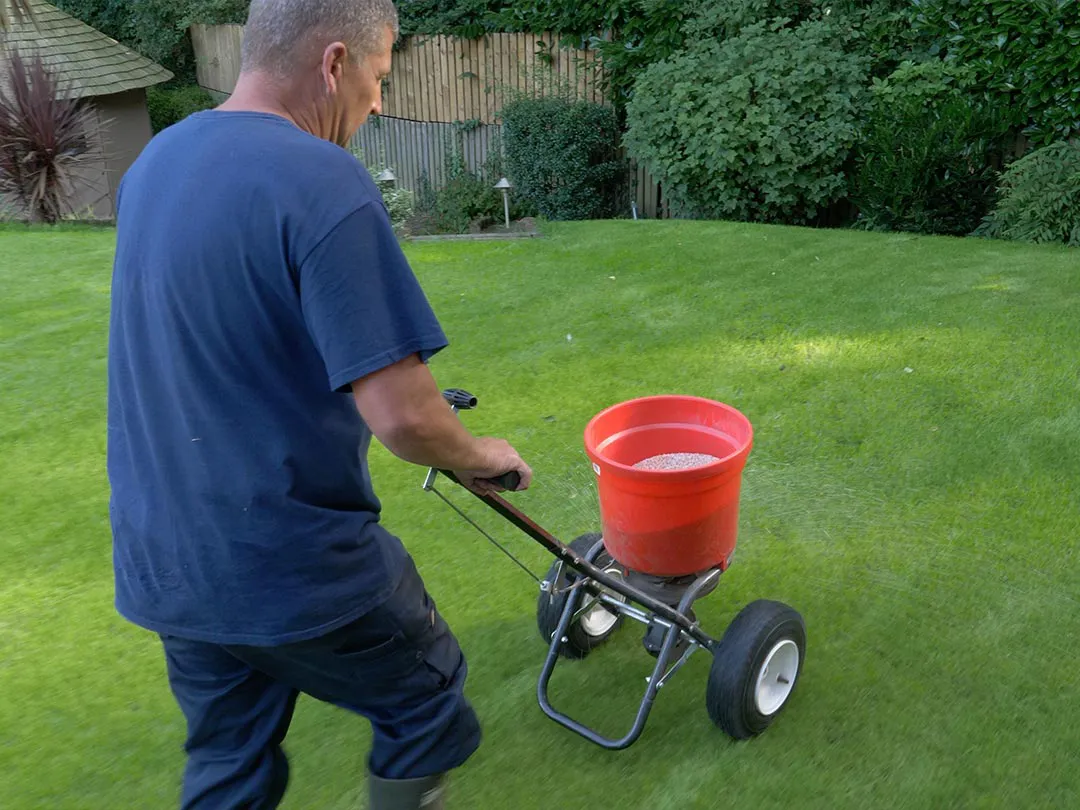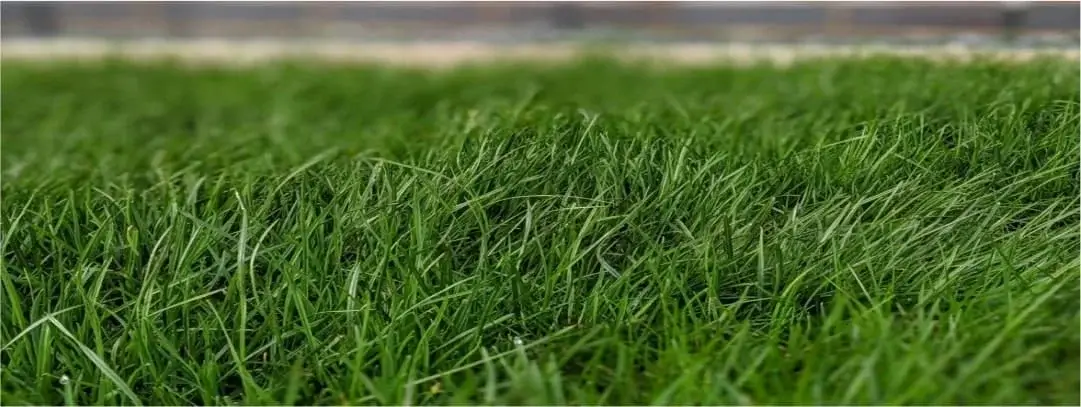Spring is finally here, and it's time to start thinking about your lawn. After a long winter, your lawn may need some extra care to get it looking lush and green again. In this article, we'll cover some essential spring lawn care tips to help you achieve a lush and healthy lawn.
Spring is a crucial time for your lawn. After months of cold weather, your lawn may be damaged, and it needs some extra attention to recover. Proper spring lawn care can help your lawn grow strong and healthy, making it more resistant to pests, diseases, and weeds.

Before you start any spring lawn care, it's essential to prepare your lawn. Remove any debris, such as leaves and branches, that may have accumulated over the winter. This will allow your lawn to breathe and receive the necessary sunlight and nutrients.
You should also scarify your lawn to remove any dead grass and thatch. Thatch is a layer of dead grass and other organic material that can build up on your lawn, preventing water and nutrients from reaching the soil as well as loosen the soil and promote healthy root growth - your local lawn expert can provide scarification services.
It is important to note that if your lawn has any moss infestation, a suitable moss treatment should be applied at least a few days prior to scarification. If you are unsure about this, contact your local lawn expert.
Over-seeding is the process of spreading grass seed over your existing lawn. This is an essential step in spring lawn care, as it helps to fill in any bare or thin spots in your lawn. Overseeding also helps to introduce new, more resilient grass varieties to your lawn, making it more resistant to pests, diseases, and weeds. Over-seeding will thicken the sward and make your lawn stronger over time.
Before over-seeding, make sure to mow your lawn to a shorter length than usual. This will allow the grass seed to reach the soil and germinate more easily. After overseeding, make sure to water your lawn regularly to keep the soil moist and promote seed germination.
The key here is to keep the seed moist, not swimming in water.
Over-seeding is always best completed directly after scarification, as the process of scarification allows the seed to make better contact with the soil.

Now that you've prepared your lawn for spring, it's time to start implementing some essential spring lawn care tips.
Fertilising your lawn is an essential step in spring lawn care. After a long winter, lawns typically lack the required nutrients to grow as they exit hibernation, and fertilising will help to replenish them. We use high-quality fertilisers that are specifically designed for spring turf care, and our nationwide group of greenkeepers and groundsman have an arsenal of products to choose from to specifically target what your specific lawns need.
It's important not to over-fertilise your lawn, as this can cause more harm than good. Too much fertiliser can burn your grass, which may then need to be repaired. Our lawn care experts will ensure that this doesn't happen by using calibrated professional broadcast spreaders.
Proper watering is crucial for a healthy lawn. In the spring, your lawn may not need as much water as it does in the summer, but it's still important to water it regularly in dry spells. Water your lawn deeply, but infrequently, to promote deep root growth. This will help your lawn become more resilient and better able to withstand drought conditions.
It's also important to water your lawn in the morning. This will allow the water to soak into the soil before the sun comes out and evaporates it. Watering in the evening can lead to fungal growth and other lawn diseases, such as Red Thread.
Mowing your lawn regularly is an essential part of spring lawn care. As the weather warms up, and we exit the dormant season, your grass will start to grow more quickly, and it's important to keep it at the right length. Mow your lawn to a height of around 2-3 inches, as this will help to promote healthy root growth and prevent weeds from taking over.
It's also important to keep your lawn mower blades sharp. Dull blades can tear the grass instead of cutting it, which can lead to a brown, unhealthy lawn which could also promote diseases and moss. If you're not comfortable sharpening your lawn mower blades yourself, consider taking them to a professional.
If you're going away on holiday and the lawn won't be cut for a few weeks, you may return to a lawn of long grass. Instead of cutting the lawn in one pass, cut the lawn gradually over multiple passes. Do not cut more than one third of the grass length in a single pass. This will help stop a low of cutting related diseases that our lawn experts regularly see.
Spring is the time when a lot of pests and diseases start to become more active. Keep an eye out for any signs of pests or diseases in your lawn, such as brown patches, holes, or chewed leaves. If you notice any issues, consult your local lawn care expert for advice on how to treat them.

While there are many things you should do to take care of your lawn in the spring, there are also some things you should avoid.
Overwatering your lawn can lead to a host of problems, including fungal growth. Make sure to water your lawn deeply, but infrequently, and only when necessary.
Mowing your lawn too short can cause it to become stressed and more susceptible to diseases and moss. Keep your lawn at a height of around 2-3 inches to promote healthy root growth and prevent weeds from taking over - check out some more tips on mowing your lawn.
As mentioned earlier, using too much fertiliser can cause more harm than good. Follow the instructions carefully and consult a lawn care professional if you're unsure about how much fertiliser to use.

Spring lawn care is essential for a healthy and beautiful lawn. By following these tips and avoiding common mistakes, you can help your lawn recover from the winter and become more resilient to pests, diseases, and weeds. Remember to prepare your lawn, fertilise, water, and mow it properly, and keep an eye out for any issues that may arise. With proper care, your lawn will be the envy of the neighbourhood in no time with our professional lawn care services.
Learn more about scarification here.
312+ Lawn Care Professionals Employed Nationwide
